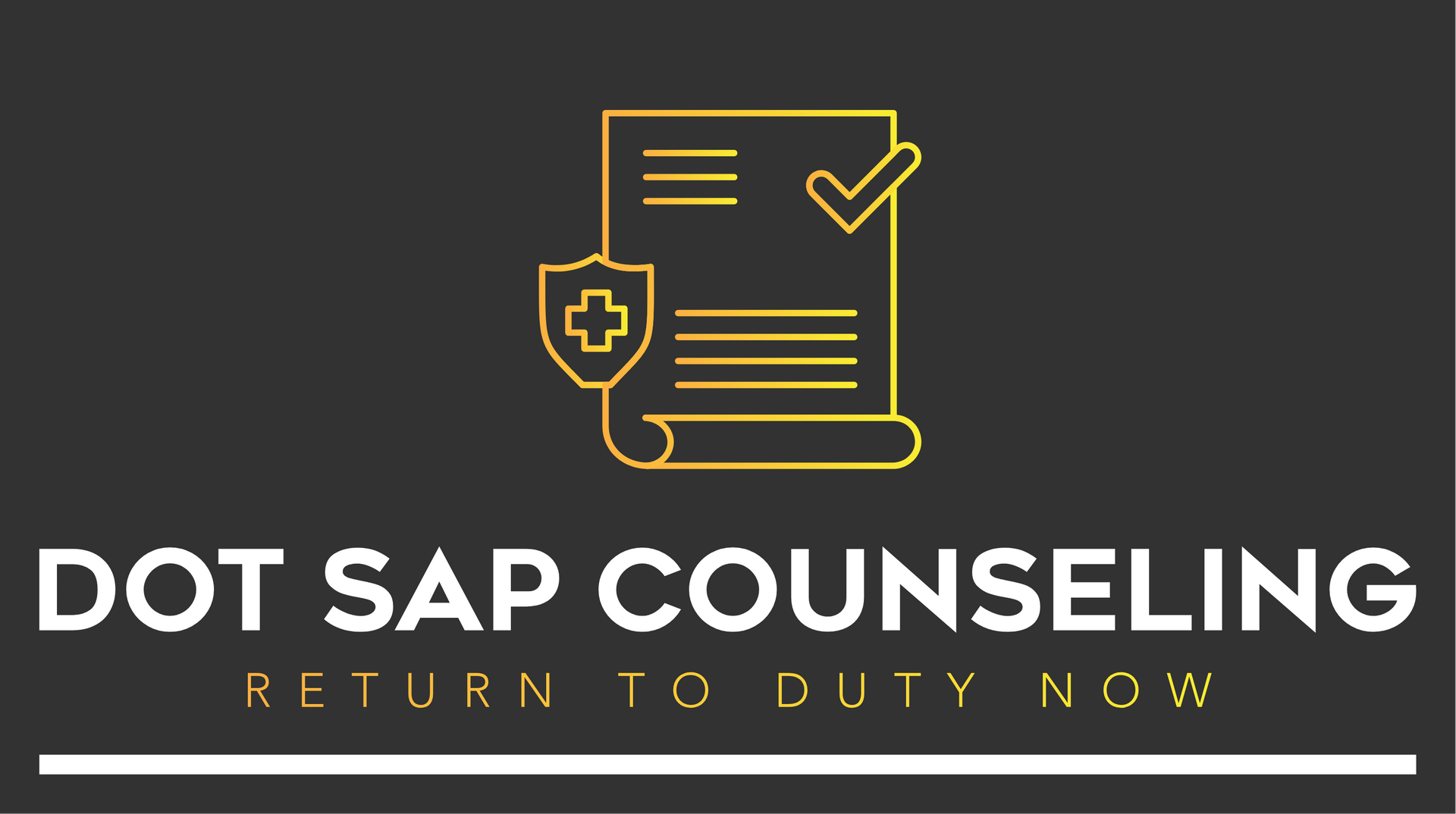How SAP Evaluations Assist California Truck Drivers Returning To Duty
In California, the trucking industry plays a vital role in keeping goods moving across the state and beyond. However, truckers face strict regulations regarding substance use.
For those who have encountered a substance use violation or failed drug test, a substance abuse evaluation can be a crucial step in getting back on the road safely and legally.
In this post, we'll explore the process and benefits of substance abuse evaluations for California truckers.
Understanding Substance Abuse Evaluations
Substance abuse evaluations are assessments conducted by certified professionals to determine a person's degree of substance use and any related problems. For truckers, these evaluations are often necessary to return to work after a substance-related incident or to comply with DOT regulations.
But what exactly happens during an evaluation? The process usually begins with a comprehensive interview where the evaluator gathers information about the individual’s substance use history, including any prior incidents or patterns. This step is essential as it lays the groundwork for understanding the behaviors and triggers involved.
Furthermore, evaluations may include standardized assessments that help in quantifying the extent of the substance use. These tools ensure that the evaluator has a clear view of the individual's habits and can pinpoint areas needing attention.
In essence, a thorough substance abuse evaluation is designed to provide insights that are both personal and professional. By getting to the heart of the matter, truckers can uncover potential pitfalls in their substance use and start to build a roadmap for recovery.
The Evaluation Process Explained
The evaluation process typically involves a personal interview, standardized assessments, and a review of the individual's history with substance use. Understanding what to expect can help truckers feel more prepared and at ease during the evaluation.
During the interview, truckers are encouraged to share their experiences openly. This can be a daunting task for many, but it's vital for the evaluator to gather accurate details. Honesty during this phase is crucial because it helps define the severity of the situation and determines the best course of action.
After the interview, standardized assessments are often employed. These assessments might include questionnaires or other tools that quantify one's relationship with substances. The results from these evaluations inform the next steps and help formulate a tailored plan for recovery.
Finally, based on the collected data, the evaluator will provide feedback and recommendations. This feedback can serve as a turning point for many truckers, offering them clarity about their situation and a way forward. Knowing what lies ahead makes a significant difference in their confidence to tackle the challenges of recovery.
Benefits of Getting an Evaluation for Truckers
Undergoing a substance abuse evaluation offers several benefits. It can provide truckers with clarity about their substance use, highlight areas that may need attention, and open doors to professional help and support systems. Additionally, it plays a crucial role in fulfilling legal and occupational requirements.
One of the primary advantages of an evaluation is the opportunity for self-discovery. For many truckers, it can illuminate hidden patterns of usage that they may not have been aware of. This newfound awareness is the first step toward making informed choices and setting personal recovery goals.
Moreover, achieving compliance with state and federal regulations is essential for any trucker's career. A completed evaluation not only meets these requirements but also allows them to prove they are committed to maintaining a safe work environment. This commitment can boost their credibility within the industry.
Lastly, evaluations can lead to a network of support. By connecting truckers with counselors, support groups, and resources tailored to their needs, an evaluation can foster a sense of community. This support can help motivate and guide them through their recovery journey.
How Evaluations Can aid in Recovery
Evaluations can tailor recovery plans to each trucker's specific needs, ensuring that they receive the appropriate resources and support. This personalized approach can greatly enhance the chances of long-term sobriety and a successful return to work.
Once the evaluation is complete, the insights gained can facilitate discussions about treatment options. Each trucker is unique, and by addressing their individual circumstances, the right strategies can be implemented to maximize success. Whether it's outpatient programs or intensive counseling sessions, having a bespoke plan can make all the difference.
Additionally, being part of a structured recovery process allows truckers to set measurable goals and receive regular feedback. This continuous evaluation fosters a sense of achievement and helps maintain motivation throughout their recovery journey.
Finally, working through an evaluation often provides truckers with a clearer understanding of their triggers. By identifying emotional and situational cues linked to their substance use, they can develop coping strategies, making it easier to navigate challenging environments in the future.
Resources and Support for California Truckers
California offers various resources for truckers seeking help. From counseling to support groups, knowing where to turn for assistance can make a significant difference in a trucker’s recovery journey.
For those in crisis, immediate access to hotlines and emergency services is essential. However, for long-term recovery, local support groups such as Alcoholics Anonymous or Narcotics Anonymous provide invaluable peer support. These groups create an environment where truckers can share their experiences and learn from one another.
Also, there are rehabilitation centers across the state that specialize in treating individuals with substance use disorders. These facilities often provide resources tailored to the trucking community, offering treatment plans that consider the unique challenges truckers face during recovery.
Moreover, many employers also recognize the importance of supporting their driving staff. Trucking companies may offer Employee Assistance Programs (EAPs) that provide confidential assistance and counseling services, ensuring their employees have a safety net when navigating their recovery.
Conclusion
A substance abuse evaluation is not just a requirement for truckers in California; it's a pathway to regaining control and ensuring safety on the road.
By understanding the evaluation process and how it can facilitate your ability to return to duty and begin driving again, truckers can take proactive steps toward a healthier, safer, and more productive career.











